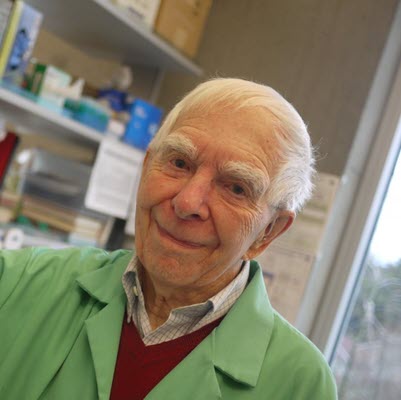
Research Interests
Antibiotic resistance, Antibiotics, Bacterial host response, Gene Regulation and Expression, Genetics, Infectious diseases, Microorganisms, Molecular Genetics
Research Focus Teams
Dr. Davies is a Professor Emeritus
Departments
Contact
Office Phone: 604–822–5856
Office number: 2506
Publications
Lab Website
Julian Davies is an internationally acclaimed microbiologist best known for his work on the biology of small molecules and antibiotics. Julian’s studies are wide-ranging and he has made fundamental discoveries relating to antibiotics and antibiotic resistance. For example, he uncovered the origin and evolution of antibiotic resistance genes — an important step in our ability to treat infectious diseases.
He identified that resistance genes, originally the response of bacteria to their exposure to small — sometimes damaging — bioactive molecules in the environment, are spread by ‘horizontal’ gene transfer between species and even genera. Consequently, his work has been central to the development of drugs to overcome antibiotic resistance.
Julian’s research output has resulted in hundreds of publications in scientific journals, six books and numerous guest lectures. He has received many awards, including the American Society for Microbiology (ASM) and Society for General Microbiology Gold Medals, and the Bristol–Myers Squibb Award. He is former President of the ASM, a Fellow of the Royal Society of Canada and a Foreign Member of the US National Academy of Sciences.
The main focus is the biology of small molecules, especially antibiotics. We are studying their discovery and isolation from a variety of natural sources: bacteria such as streptomycetes, sediments, mushrooms, and from bacteria that inhabit lichens are employed. We have a large collection of identified strains that can be screened for different functions. We screen for bioactivity using lux reporter strains and then isolate, purify and determine the structures of the active compounds. A variety of different tester strains of bacteria are also used to detect antibiotic activity. A second project is to use transcription modulation to monitor the effects of antibiotics against different types of bacteria and have found that antibiotics sometimes have undesirable effects, such as actually enhancing the expression of resistance genes in pathogens!
Our interest in antibiotics also includes studies of the roles of antibiotics in nature; are they used as weapons in inter-cellular warfare, or are they signaling agents that help to stabilize the interactions between bacterial communities in different environments? We believe the latter and are accumulating evidence that their roles are primarily for communication between bacteria and other organisms such as plants and even animals. How do they act as signals? Probably by binding to macromolecular receptors such as ribosomes or the transcription complex in receptor bacteria.
Of course, it would not be possible to study antibiotics without having an interest in resistance, and we are studying the antibiotic resistance genes in remarkable genetic structures called integrons. We are also looking into environmental sources of antibiotic resistance and are trying to track the routes of resistance gene acquisition. Perhaps more importantly, we are part of a Canadian team that is looking for ways to prevent the activity of resistance mechanisms, so that it would be possible to suppress resistance during the treatment of infectious diseases.